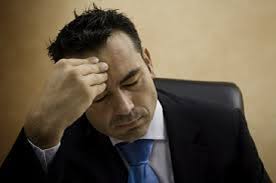It’s easy to cheer for the Prodigal Son, the young man who rebelled, ran away from home, squandered his inheritance, hit the bottom, had a transformative experience (woke up), and came home to the waiting arms of his father who never gave up on him. It’s the stuff of Hallmark movies, except Hallmark does not show the agony involved in such a transformation.
This is the story of every person who has awakened from the illusions of childhood to the reality of adulthood. This is an autobiographical story of every person who has stepped fearfully or angrily away from the comforts of what they grew up believing about themselves, the world, and God, and out into the unknown. It’s a step we all must take in our growing up.
But it’s another character in the story that gets my attention, because he looks so much like me. It’s the elder brother, the one who never left home, who did not step outside the confines of comfortable, predictable duty.
This young man stayed home, remained dutiful to his role, maintained the family image. It was upon the return of his profligate younger brother that we see the character and plight of the elder. His life has rolled along on a predictable routine, he has been successful in maintaining and building the family business, he is surrounded by the friends of the family who admire his loyalty and hard work. But his life, too, is falling apart.
He is the perfect example of someone locked in a room with open doors. He has allowed himself to be trapped by his duty. Loyalty has become his prison, and there is no joy in the work that he does so well.
And he is furious.
His fury does not come out until he sees his younger brother getting the attention that he thinks he should have gotten every day. “Where’s my thanks for my hard work? Where’s the gratitude for my loyalty? Where’s my party for showing up for work every damn day?”
 His life, I’m sure, has had its share of legitimate suffering. He has experienced all the same misery we all suffer. He has lost dear friends. He’s been heart-broken and abandoned. He’s been disappointed. But he has heaped on needless suffering by assuming that he was stuck, that he had no choices, and that his life should not be so confined.
His life, I’m sure, has had its share of legitimate suffering. He has experienced all the same misery we all suffer. He has lost dear friends. He’s been heart-broken and abandoned. He’s been disappointed. But he has heaped on needless suffering by assuming that he was stuck, that he had no choices, and that his life should not be so confined.
But, out of fear, he didn’t make any of his own choices, except the choice to stay right where he was. And therefore he projects all of his anger toward himself onto his brother.
We always heap needless suffering onto the already heavy load we carry whenever we assume this should not be happening.
We are never upset for the reasons we think. That’s next.
0 Comments until now
Add your Comment!